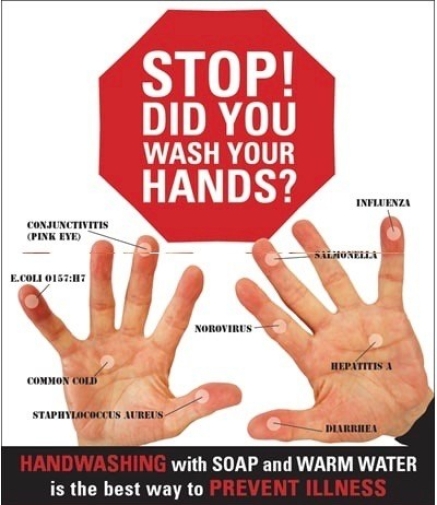You’ve probably heard the occasional news story about an outbreak of Hepatitis A, E.coli, Listeria or Salmonella – all germs that can be transmitted to people through contaminated food.
Salmonella pullorum is a bacterial disease than can be carried in various species of birds, but is most often seen in chickens. It can be passed to them from rodent droppings, flies, fecal contaminated feeders and waterers and inhaling dust and dander. Hens can pass it to their chicks as the egg is being formed and those chicks, when hatched, can spread it through their droppings to their hatch mates.

The infection is most often seen in large-scale poultry farms due to the concentration of thousands of birds living in close proximity. The risk in small flocks is still relatively low, but as backyard chickens become more popular we need to educate ourselves on the risk of Salmonella, for both the health of our birds as well as our own.
You are more likely to get Salmonella from store-bought poultry or other foods than from your own birds. The important thing is to follow good hygiene practices with your birds and food safe guidelines in your kitchen.
As chicken keepers we want to be aware of Salmonella infection within our flock because it can contaminate eggs or poultry, as well as make our birds sick.
In chicks, the symptoms are lethargy, white or yellow diarrhea, pasty vents and high mortality. Adults can often carry a small bacterial load without symptoms. Some may have watery diarrhea, a drop in egg production, weight loss, increased thirst, decreased food intake and a bluish comb. On post-mortem damage to the liver, spleen, kidney, heart and ovaries are commonly seen.
The treatment is a course of broad-spectrum antibiotics. Make sure to consult a vet so you are administering the correct antibiotics and dosage for this bacterial infection.
Yes, Salmonella is on the increase in backyard flocks, but the numbers are still small compared to contamination from supermarket poultry and other products. There’s no need to panic and we can lower our risk by practicing good bio-security and routine, consistent hygiene.
So what does that mean?
- Let’s face it chickens are dirty: they poop in their food, water, nest boxes and roost bars. Practicing good hygiene by routine cleaning of your coop, feeders, waterers and roost bars with disinfectant is important.
- The best way to prevent most common germs is to wash your hands. Every time you’ve been in your coop, handling your chickens, eggs, or tools you should immediately wash your hands with soap and hot running water. Be sure to supervise young children when they are washing up after doing the same.
- Have dedicated coop shoes and don’t wear them in the house. Keep a spare pair of shoes outside for your chicken chores. Wear these shoes anytime you are cleaning, going in the coop to collect eggs, filling feeders or being in an area where your chickens free range. Avoid wearing these shoes in your house so that you don’t track any germs in the house. Wash chicken equipment outside.
- Limit chickens in your house. If you have to bring one in for medical treatment be sure to disinfect the area thoroughly. Don’t let them in areas where you prepare or serve food. If you are raising chicks indoors, house them in a basement or garage.
- Exercise caution when letting small children or seniors handle birds. Be sure children wash their hands well and teach them to keep their hands away from their face while holding the birds.
- Don’t kiss or snuggle birds to your face.

- Proper egg handling: Collect them often so they aren’t sitting in the coop where they could get dirty. Don’t eat cracked eggs (I give them to my dog). Wash eggs in warm, running water and store in the refrigerator until ready to use. Don’t use eggs that are really dirty or poopy (again, use for animal food). Be sure to cook your eggs (and meat) thoroughly before eating to destroy any bacteria.
- Cooking chicken and eggs thoroughly will kill Salmonella. Be careful about cross-contamination in your kitchen. The recommendation is not to wash raw chicken because the spray might contaminate counters and other surfaces. Wash your hands, knives and work surfaces after handling raw chicken.








Wow! Thanks for the informative post, salmonella is pretty serious!
LikeLiked by 1 person
Great article. I think as farmers we build up a good resistance but we still have to follow basic hygiene and precautionary steps. Thx
LikeLiked by 1 person
Yes, yes, yes. Wash your hands!
LikeLiked by 1 person